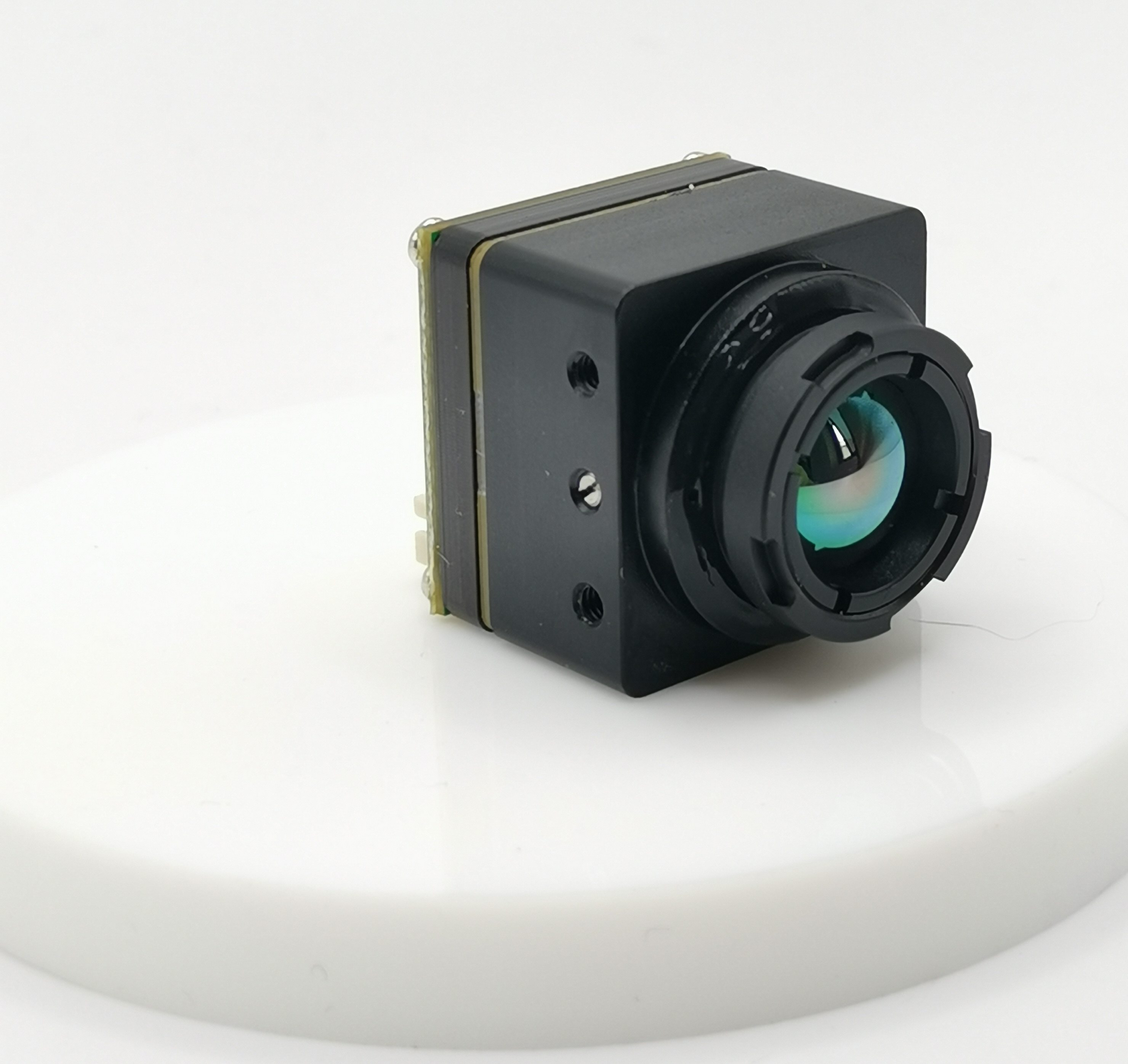Mastering FPV Thermal Camera for Drone Surveillance: A Comprehensive Guide

Exploring the Basics of FPV Thermal Cameras
When it comes to drone surveillance, FPV Thermal Cameras play a crucial role in providing enhanced capabilities for both day and night operations. Let's delve into the fundamental aspects of these innovative devices.
What is an FPV Thermal Camera?
Understanding the Technology Behind FPV Thermal Cameras
An FPV Thermal Camera is designed to detect heat signatures, allowing it to capture thermal images of objects, people, or animals based on their temperature variations. Unlike traditional cameras that rely on visible light, thermal cameras operate by detecting infrared radiation emitted by objects, making them particularly effective in low-light or no-light conditions.
The Role of FPV in Drone Surveillance
In the realm of drone surveillance, FPV Thermal Cameras enable operators to conduct comprehensive monitoring and reconnaissance missions. By leveraging the unique ability to capture heat signatures, these cameras empower drones to identify targets with precision and navigate through challenging environments with ease.
Introducing the iSun Analog FPV Thermal Camera
Key Features and Benefits
The iSun analog FPV thermal camera stands out for its advanced features, including high-resolution thermal imaging capabilities, real-time video transmission, and seamless integration with various drone models. Its lightweight design and durable construction make it an ideal choice for professional drone operators seeking reliable thermal imaging solutions.
Why Choose iSun for Your Drone?
Choosing the iSun analog FPV thermal camera for your drone equips you with unparalleled night vision capabilities and enhanced situational awareness. Whether it's for search and rescue missions or infrastructure inspections, the iSun camera delivers exceptional performance and reliability in diverse operational scenarios.
The Advantages of Using FPV Thermal Cameras in Drone Surveillance
FPV thermal cameras revolutionize drone surveillance by offering unparalleled advantages that enhance operational capabilities and effectiveness. Let's explore how these innovative devices provide a significant edge in various surveillance scenarios.
Enhanced Night Vision Capabilities
The integration of FPV Thermal Cameras empowers drones with exceptional night vision capabilities, enabling them to operate beyond the constraints of visible light.
Seeing Beyond the Visible Spectrum
With the ability to capture heat signatures, FPV Thermal Cameras extend visibility into the infrared spectrum, allowing drones to detect and track targets even in complete darkness. This capability is particularly valuable for nocturnal surveillance missions where traditional cameras fall short.
Case Studies: Night Surveillance Success Stories
Numerous successful surveillance operations have showcased the remarkable impact of FPV Thermal Cameras in night vision applications. From law enforcement agencies tracking suspects under the cover of darkness to wildlife conservation efforts monitoring elusive species, these case studies highlight the invaluable role played by thermal imaging technology in achieving mission objectives.
Improved Safety and Efficiency in Operations
The utilization of FPV Thermal Cameras elevates safety standards and operational efficiency across diverse surveillance activities, ranging from reconnaissance missions to emergency response operations.
Navigating Difficult Terrains with Confidence
Equipped with thermal imaging capabilities, drones can navigate through challenging terrains such as dense forests, rugged landscapes, and urban environments with enhanced confidence. By detecting heat signatures and environmental variations, operators can maneuver drones safely through obstacles and obstructions that would otherwise pose significant risks.
Speeding Up Search and Rescue Missions
In search and rescue scenarios, time is often a critical factor. FPV Thermal Cameras expedite search efforts by swiftly identifying heat signatures associated with individuals or objects in remote or hazardous locations. This accelerated detection process significantly improves the chances of successful rescue operations while minimizing response times.
List:
Enhanced night vision capabilities
Improved safety and efficiency in operations
Navigating difficult terrains with confidence
Speeding up search and rescue missions
Practical Tips for Mastering FPV Thermal Camera Operation
Now that we understand the advantages of FPV thermal cameras in drone surveillance, it's essential to master their operation for optimal performance and effectiveness. Here are some practical tips to ensure you make the most of your FPV thermal camera for drone operations.
Setting Up Your FPV Drone Thermal Camera
Step-by-Step Installation Guide
When installing your FPV thermal camera onto your drone, it's crucial to follow the manufacturer's guidelines meticulously. Begin by ensuring that the camera is securely mounted and aligned with the drone's flight direction. Double-check all connections and cables to guarantee seamless integration and functionality. Refer to the user manual for detailed instructions on physical installation and initial setup.
Optimizing Camera Settings for Different Conditions
To maximize the utility of your FPV thermal camera, familiarize yourself with its various settings and configurations. Experiment with different color palettes, temperature scales, and image enhancement features to adapt to diverse environmental conditions. Understanding how to adjust these settings based on factors such as ambient temperature, humidity, and target characteristics will significantly enhance the accuracy and clarity of thermal images captured during surveillance missions.
Best Practices for Effective Surveillance
Planning Your Flight Path
Before deploying your drone equipped with an FPV thermal camera, carefully plan the flight path to cover the designated surveillance area comprehensively. Consider factors such as altitude, wind conditions, and potential obstacles that may affect both drone navigation and thermal imaging quality. By strategizing an efficient flight path, you can optimize coverage while conserving battery life and maximizing operational efficiency.
Interpreting Thermal Images Accurately
Accurate interpretation of thermal images is a critical skill for effective surveillance using an FPV thermal camera. Familiarize yourself with common heat signatures associated with different objects or subjects under observation. Regular practice in interpreting thermal patterns will sharpen your ability to identify anomalies or potential targets amidst varying backgrounds or environmental conditions.
List:
Step-by-Step Installation Guide
Optimizing Camera Settings for Different Conditions
Planning Your Flight Path
Interpreting Thermal Images Accurately
Real-World Applications of FPV Thermal Cameras in Surveillance
As the capabilities of FPV Thermal Cameras continue to evolve, their real-world applications in surveillance expand across diverse domains, from wildlife monitoring and conservation to infrastructure inspection and security.
Wildlife Monitoring and Conservation
Tracking Animals Without Disturbance
The integration of FPV thermal cameras with drones has revolutionized wildlife monitoring by enabling researchers and conservationists to track animals without causing disturbance. Traditional observation methods often involve intrusive approaches that can disrupt natural behaviors and habitats. However, with the non-invasive nature of thermal imaging, drones equipped with FPV thermal cameras can observe and track wildlife from a safe distance without interfering with their activities.
Supporting Conservation Efforts with Thermal Imaging
The use of FPV Thermal Cameras plays a pivotal role in supporting conservation efforts by providing valuable insights into animal behavior, population dynamics, and habitat utilization. Conservationists leverage thermal imaging technology to conduct non-intrusive surveys, monitor endangered species, and assess the impact of environmental changes on wildlife populations. The data obtained through thermal surveillance contributes to informed conservation strategies aimed at preserving biodiversity and ecosystems.
Infrastructure Inspection and Security
Identifying Potential Issues in Buildings and Power Lines
In the realm of infrastructure inspection, FPV thermal cameras offer unparalleled capabilities for identifying potential issues in buildings, power lines, and other critical structures. By detecting variations in temperature associated with electrical malfunctions or structural anomalies, these cameras enable inspectors to pinpoint areas requiring attention or maintenance. The ability to identify hotspots or irregular heat patterns serves as an early warning system for addressing potential hazards before they escalate into significant problems.
Enhancing Security Measures in Sensitive Areas
Security professionals harness the power of FPV Thermal Cameras integrated with drones to enhance surveillance measures in sensitive areas such as border regions, industrial facilities, and high-security installations. The thermal imaging capability enables security personnel to detect intruders or unauthorized activities even under low-light conditions or obscured environments. By providing a comprehensive view beyond visible light limitations, FPV thermal cameras contribute to proactive security measures aimed at preventing breaches and safeguarding critical assets.
List:
Tracking Animals Without Disturbance
Supporting Conservation Efforts with Thermal Imaging
Identifying Potential Issues in Buildings and Power Lines
Enhancing Security Measures in Sensitive Areas
Wrapping Up: Mastering FPV Thermal Cameras for Enhanced Surveillance
As we conclude our comprehensive guide to FPV thermal cameras for drone surveillance, it's essential to recap the remarkable capabilities and look ahead to the future of this transformative technology.
Recap: The Power of FPV Thermal Imaging in Drones
Throughout this guide, we've explored the pivotal role of FPV thermal cameras in revolutionizing drone surveillance. These innovative devices empower operators with enhanced night vision capabilities, improved safety and efficiency in operations, and practical tips for mastering their operation. By harnessing the ability to detect heat signatures, FPV thermal cameras enable drones to navigate challenging terrains with confidence and expedite search and rescue missions. Moreover, their real-world applications span from wildlife monitoring and conservation to infrastructure inspection and security, showcasing their versatility and impact across diverse domains.
Looking Ahead: The Future of Drone Surveillance
Emerging Trends and Technologies
The future of drone surveillance holds exciting prospects for further advancements in FPV thermal imaging technology. As research and development continue to drive innovation, we anticipate enhancements in thermal camera resolution, image processing algorithms, and integration with artificial intelligence for advanced analytics. These developments will expand the capabilities of drones equipped with FPV thermal cameras, opening new possibilities for precision surveillance, environmental monitoring, and emergency response applications.
Final Thoughts and Encouragement for Drone Enthusiasts
In closing, we encourage drone enthusiasts to embrace the potential of FPV thermal cameras as a game-changing tool for enhancing surveillance capabilities. Whether it's leveraging these devices for wildlife conservation efforts or optimizing security measures in critical areas, the fusion of drones with FPV thermal imaging technology presents boundless opportunities for impactful applications. As technology continues to evolve, staying informed about emerging trends and embracing new possibilities will be key in unlocking the full potential of FPV thermal cameras for enhanced surveillance.
List:
Recap: The Power of FPV Thermal Imaging in Drones
Looking Ahead: The Future of Drone Surveillance
See Also
Becoming an Expert in FPV Thermal Camera Technology for Drone Imaging
Becoming Proficient in Analog FPV Thermal Camera for Drone Photography
Becoming Skilled in FPV Thermal Camera for Drone Monitoring
Optimizing Drone Monitoring with Analog FPV Thermal Camera
Becoming a Master in FPV Thermal Camera for Choosing Top Drones
Contact Us: Ms. Coco Huang
E-mail: sales@iasun.cn
WhatsApp/Wechat: +86 13510421923

